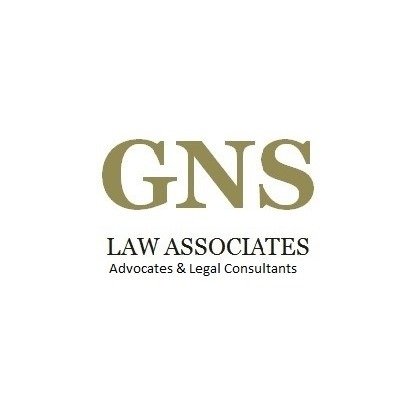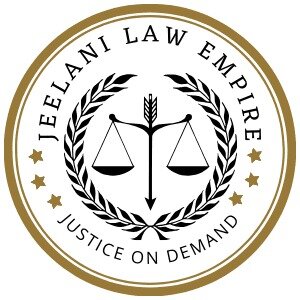Best Debt & Collection Lawyers in Karachi
Share your needs with us, get contacted by law firms.
Free. Takes 2 min.
List of the best lawyers in Karachi, Pakistan
Pakistan Debt & Collection Legal Questions answered by Lawyers
Browse our 1 legal question about Debt & Collection in Pakistan and read the lawyer answers, or ask your own questions for free.
- I need to send a legal notice of fraud
- I have given loan to a family and now they are not paying it back even after 3 years of wait. I need to send them a legal notice to settle the case in court if they will not pay it back. Is ot possible to first use legal notice... Read more →
-
Lawyer answer by Law Office Attorney SVETISLAV STOJANOSKI, LL.M.
Yes it is possible to first use legal notice.
Read full answer
About Debt & Collection Law in Karachi, Pakistan
Debt & Collection Law in Karachi, Pakistan regulates issues related to debt, such as loan defaults, non-payment of bills, and debt recovery. These laws aim to strike a balance between protecting the rights and interests of both creditors and debtors. If you find yourself in a legal dispute regarding debt or collection, it's important to understand your rights and obligations under the relevant laws.
Why You May Need a Lawyer
Seeking legal advice from a lawyer specializing in Debt & Collection can be crucial in various situations, including:
1. Negotiating and drafting debt settlement agreements.
2. Dealing with harassment or illegal practices by debt collectors.
3. Understanding your rights and options if you are unable to repay your debts.
4. Handling court proceedings related to debt collection or debt recovery.
5. Protecting your rights as a creditor and pursuing legal action against defaulting debtors.
Local Laws Overview
The Debt & Collection laws in Karachi, Pakistan are primarily governed by:
1. Provincial laws: Debt recovery and collection matters are primarily regulated under the Sindh Recovery of Public Dues Act, 1959. This law outlines the process for recovering public dues including unpaid bills, taxes, fees, and fines.
2. Contract laws: The general principles of contract law, as outlined in the Contract Act, 1872, are applicable in matters of debt and collection. These laws govern the creation, performance, and enforcement of contracts between creditors and debtors.
3. Consumer protection laws: The Pakistan Consumer Protection Act, 2005, provides certain safeguards and remedies for consumers facing unfair debt collection practices. This law protects consumers from harassment, threats, and abuse by debt collectors.
Frequently Asked Questions
Q: Can my property be seized if I am unable to repay my debts?
A: Yes, under certain circumstances, a creditor may initiate legal proceedings to recover their debt. If a court judgment is obtained, the creditor may be allowed to seize certain assets to satisfy the outstanding debt. It is advisable to consult with a lawyer to understand your rights and options in such situations.
Q: How can I dispute a debt that I believe is incorrect or unjust?
A: If you believe that the amount of debt claimed by a creditor is incorrect or unjust, you have the right to dispute it. Start by informing the creditor in writing, requesting them to provide evidence supporting the debt. If the dispute remains unresolved, you may consider seeking legal advice to protect your rights and explore legal remedies.
Q: What constitutes harassment by debt collectors?
A: Harassment by debt collectors is illegal. It includes actions such as incessant phone calls, making threats, using abusive language, and disclosing debtor information to third parties without consent. If you experience such behavior, you should document incidents and contact a lawyer who can assist you in taking appropriate legal action.
Q: Can I negotiate a debt settlement with my creditors?
A: Yes, it is possible to negotiate a debt settlement arrangement with your creditors. A debt settlement involves an agreement where you pay a reduced amount to settle your debt instead of the full owed amount. It is advisable to consult with a lawyer who can guide you through the negotiation process and help you protect your interests.
Q: How can I find a reputable debt collection lawyer in Karachi?
A: To find a reputable debt collection lawyer in Karachi, you can seek recommendations from trusted friends, family members, or colleagues who have previously dealt with similar legal matters. Additionally, you can consult with local bar associations, legal directories, or online platforms that provide listings and reviews of lawyers specializing in debt collection cases.
Additional Resources
For additional information and assistance related to Debt & Collection in Karachi, Pakistan, consider reaching out to the following resources:
1. The Sindh Recovery of Public Dues Act, 1959 - The official legislation outlining the process for recovering public dues, available on the official government website.
2. Karachi Bar Association - A professional association comprising lawyers practicing in Karachi, offering guidance and referrals to legal experts.
3. Pakistan Consumer Protection Authority - A governmental body responsible for safeguarding consumer rights and addressing unfair practices by debt collectors.
Next Steps
If you require legal assistance for Debt & Collection matters in Karachi, Pakistan, the following steps can be helpful:
1. Gather relevant documents: Collect all relevant documents related to the debt, including loan agreements, bills, invoices, receipts, and any correspondence with the creditor or debt collector.
2. Consult a lawyer: Seek guidance from a lawyer specializing in Debt & Collection in Karachi. They can review your case, explain your rights and legal options, and guide you on the best course of action.
3. Follow legal procedures: If required, your lawyer will assist you in following the necessary legal procedures, such as negotiating with creditors, filing legal claims or defenses, and representing you in court if the matter escalates.
4. Maintain communication: Keep your lawyer informed about any developments or communications from creditors or debt collectors. They can provide advice on the appropriate responses and help protect your interests.
5. Document and organize: Maintain a record of all communications, payments, and other relevant information regarding the debt and collection process. This documentation can serve as evidence if any disputes arise in the future.
Lawzana helps you find the best lawyers and law firms in Karachi through a curated and pre-screened list of qualified legal professionals. Our platform offers rankings and detailed profiles of attorneys and law firms, allowing you to compare based on practice areas, including Debt & Collection, experience, and client feedback.
Each profile includes a description of the firm's areas of practice, client reviews, team members and partners, year of establishment, spoken languages, office locations, contact information, social media presence, and any published articles or resources. Most firms on our platform speak English and are experienced in both local and international legal matters.
Get a quote from top-rated law firms in Karachi, Pakistan — quickly, securely, and without unnecessary hassle.
Disclaimer:
The information provided on this page is for general informational purposes only and does not constitute legal advice. While we strive to ensure the accuracy and relevance of the content, legal information may change over time, and interpretations of the law can vary. You should always consult with a qualified legal professional for advice specific to your situation.
We disclaim all liability for actions taken or not taken based on the content of this page. If you believe any information is incorrect or outdated, please contact us, and we will review and update it where appropriate.
















